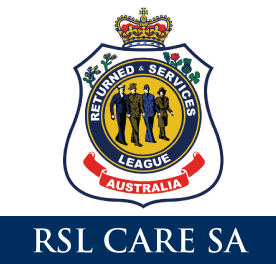Making the transition into residential aged care can be an emotional time for all involved. Having a thorough understanding of the entire admission process can help alleviate some of the stress involved when making the right decision for yourself or a loved one.
If it is time for someone you know to enter the world of residential aged care, or you want to be as prepared as you can for a future time, we have listed a few things you may want to consider before you make the transition below.
Know when it is time and consider your options
There are a number of reasons it could be a suitable time for someone to enter aged care. Whether the home environment is too much to handle or is becoming unsafe, family support has subsided or someone is suffering from loneliness, aged care can provide peace of mind and a safe, social place of residence for those in need.
Identifying the need for care is the first step in creating a better life for vulnerable people, with the type of care required dependant on each person’s individual situation. The most common types of care include:
- Residential care – for those who can no longer live at home and need ongoing help with everyday tasks or health care
- Short term care – such as respite care to give people or their carers a break
- Home care – provides support to help each person remain independent for as long as possible
A great resource on your journey into aged care is the Australian Government’s My Aged Care website. All the information and tools you require can be found on there. Alternatively, you can contact RSL Care SA to enquire about the residential and short term care we provide across our three locations in Myrtle Bank, Murray Bridge and Angle Park.
Register for an ACAT assessment and access government funding
In order to access government-subsidised care, you will first need to be assessed for your eligibility. The first step in this process is a simple check over the phone or online and is followed by an in-person assessment carried out by the Australian Government’s Aged Care Assessment Team (ACAT). The ACAT assessors are qualified professionals such as nurses, allied health care and social workers who approve residents for a range of home care services.
Register for a free ACAT assessment by:
- Phone – 1800 200 422
- Online – https://www.myagedcare.gov.au/referral
- GP – Contact your GP or health care professional to provide a referral
Once the assessment has taken place, the applicant will receive their results within a few days, or quicker if the matter is urgent. The ACAT result document is also known as a ‘My Support Plan’ and will include a referral code for each service the applicant is approved for. These referral codes are a way for facilities to access the applicant’s My Support Plan. To be offered a respite or permanent bed at an aged care facility, or to be put on a waiting list, you will usually be asked to provide this document or the referral code. It is important to remember, once you apply for an ACAT assessment, there is no requirement to use the services that you have been approved for.
RSL Care SA offer government-subsidised rooms across two locations and provide information regarding this on our website. If you would like more information or require help registering for an ACAT assessment, feel free to contact our admissions team by phone on (08) 8379 2600 or by email at admissions@rslcaresa.com.au.
Understand what you are liable to pay
Fees associated with aged care vary depending on an individual’s circumstances and the type of accommodation they are seeking.
When entering aged care, a resident or their representative will need to lodge an asset and income assessment to Services Australia or Department of Veterans Affairs (DVA). Once this is lodged, a resident will be placed into one of three categories which will ultimately determine the fees they will need to pay.
The asset and income threshold categories and associated fees are as follows:
Asset & Income Free Threshold (Low Means)
Resident has assets between $0 and $61,500, and income below $33,849.40. The resident will need to pay:
- Basic Daily Care Fee (BDCF) only
First Asset & Income Threshold (Low Means)
Resident has assets between $61,500 and $206,663.20 and income below $84,656.52. The resident will need to pay:
- Basic Daily Care Fee
- Accommodation Contribution
Above First Asset &Income Threshold (Financial)
Resident has assets above $206,663.20 and income above $84,565.52. The resident will need to pay:
- Basic Daily Care Fee
- Accommodation Payment
- Means Tested Care Fee
Understand the fees and charges
Once you have determined your threshold and what fees are applicable to you, it is important you have a thorough understanding of what each fee means. The general fees include:
Basic Daily Care Fee
The Basic Daily Care Fee (BDCF) is paid by everyone. This fee is set by the Commonwealth Government and is approximately 85% of the single aged pension. The BDFC covers all living expenses and contributes to the costs of other services. The current daily rate is $63.82.
Means Tested Care Fee
The Means Tested Care Fee (MTCF) is paid by residents who exceed the government’s first asset and income threshold. As the BDCF does not cover 100% of the costs incurred by an aged care facility in providing its services, residents who are deemed to have the financial means are required to contribute more towards the cost of their own care. The MTCF varies depending on the asset and income level of the resident.
Accommodation Contribution
The Accommodation Contribution is paid by Low Means residents only. The facility has restrictions on how much it may charge based on its Low Means resident ratio and whether or not the facility is newly refurbished. The Accommodation Contribution may be paid as a lump sum equivalent, known as the Refundable Accommodation Contribution which is 100% refundable.
Accommodation Payment
The Accommodation Payment is made by financial residents only. The price is set by the facility in accordance with government provisions and is non-negotiable. There are three accommodation payments to consider:
- Refundable Accommodation Deposit (RAD)
A RAD is when a resident chooses to pay the accommodation payment as a lump sum. RAD payments are 100% refundable and government guaranteed. RAD payments are invested securely by RSL Care SA and the interest received is used to cover accommodation costs. - Daily Accommodation Payment (DAP)
A DAP is when the accommodation is paid on a periodic basis. It is calculated as a daily payment by applying the government’s Maximum Permissible Interest Rate (Current MPIR – 8.17%) to the Accommodation Payment. - Combination of both RAD and DAP
It is possible to combine the RAD and DAP payment options. The DAP will be calculated on the unpaid portion of the RAD. There is also an option for the DAP to be withdrawn from the RAD payment.
Seeking aged care arrangements is a unique experience for everyone. For this reason, RSL Care SA is unable to give financial advice or provide specific guidance as to which option is most suitable for you. We strongly encourage you seek independent financial advice prior to making any decisions.
Organise site tours to decide on a facility that suits personal interests and needs
The most important thing is that each resident feels comfortable within the facility. Decide on factors that are important to you when narrowing down suitable places. Is being located close to family important? Do your interests align with those promoted at the facility? Is it important you have a large room with a window? Asking lots of questions, visiting facilities for site tours and ensuring individual values are reflected in those of the facility will help to ensure you make a decision that is best for you or your loved one.
Once a decision has been made, submit your application form and if a room is suitable, accept the offer within 24 hours.
Make a safer, happier home for yourself of someone you love
Once the application is accepted and a move in date is organised you can pack your personal things and arrive at the facility. Staff will greet you, help you settle in and ensure your ongoing comfort.
Seeking aged care arrangements can seem like a daunting prospect, however with the right help and support, it is a process that can be broken down and easily navigated. RSL Care SA is always ready to answer any questions you may have about making the transition into aged care. Contact our admissions team by phone on (08) 8379 2600 or by email at admissions@rslcaresa.com.au.
Figures and percentages reflect the Department of Health ‘Schedule of Fees and Charges for Residential and Home Care’ from 1st April 2025.

